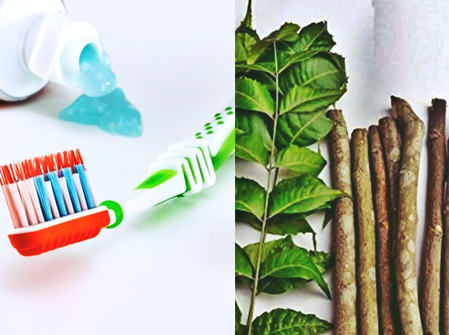New Delhi, 15 September (IANS). Today, when there are various toothpastes and brushes in the market, the traditional method of Ayurveda is still under discussion due to its simplicity, natural qualities and effectiveness. Centuries ago, when there were neither a toothbrushes nor a chemical paste, people took care of their teeth and gums with twigs of trees like neem, acacia and karanja. It was not just a cleaning process, but a complete Ayurvedic routine for teeth, gums and entire mouth health.
In Ayurvedic texts, Datun is mentioned through ‘Prabhate Dantadhavanam’ verse, in the morning, cleaning the teeth in the morning is described as an essential part of the routine. But here, not brush, but the datun of special trees has been given priority. Neem and acacia twigs are bitter, which naturally have bactericidal, antiseptic and astringent properties. When they are chewed, they make a type of foam in the mouth that destroys bacteria and cleans the dirt stored around the teeth.
In simple language, when you chew Datun, its fibers go between your teeth and act like a natural floss. This removes plaque and food particles. The tip of the teeth leads to a gum massage, which improves blood circulation and makes the gums strong. The bitter and astringent juices present in neem and acacia eliminate problems like bleeding, swelling and smell from the gums.
At the same time, the fluoride and other chemicals present in modern toothpaste can be harmful when used for a long time, while Datun is a 100 percent natural option. It not only cleanses the teeth, but also balances the health of the entire mouth. The medicinal properties present in it destroy the bacteria of the mouth and keep the breath fresh for a long time.
In ancient times, all the datuns used to use King-Maharaja to Rishi-Muni. In compound routine, it is considered mandatory for the body to keep the body pure and energetic. This is the reason that in many villages and traditional houses, people are still seen chewing with neem or acacia branch in the morning.
-IANS
PIM/AS

















